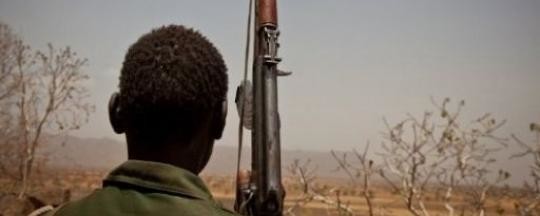Since last year nearly all rebel insurgencies in South Sudan have ceased with exception of the David Yau Yau’s militia. Since 2012–2013 a number of South Sudanese rebel militia commanders have accepted presidential amnesty, surrendered their forces, and begun negotiating their integration into the SPLA. Alyuak Ogot’s troops (SSDM/A) and nearly all SSLM forces have accepted amnesty as of October 2013. Khartoum’s pledge to eliminate assistance to the rebellious groups appears to be a factor in their surrender.
This concludes the Small Arms Survey of the Human Security Baseline Assessment (HSBA). “It remains to be seen whether the agreements will be implemented and their forces integrated. (…) Long-term failure to integrate former insurgent forces is a risk factor for renewed rebellion,” the survey notices. Yau Yau demonstrated this when he decided to re-defect in 2012, after accepting amnesty in 2011. He revolted against SPLA’s abuses of the Murle tribe in Pibor county in mid 2012 and was not satisfied with his initial amnesty package. Yau Yau continues to arm Murle youths, and remains a primary source of arms for civilians in South Sudan.
Integration into SPLA
Surrendered forces formerly under Yau Yau, Athor, and Bapiny Monituel still await integration, some since as early as 2011, while the forces of Peter Gadet and Gatluak Gai have been fully integrated into the Sudan’s People Liberation Army (SPLA). Southern insurgent groups that had moved to rear bases in South Kordofan and Blue Nile, Sudan, have accepted President Kiir’s amnesty offer and returned to South Sudan. Other underlying conditions that influence insurgents in Greater Upper Nile are the political marginalization of the Shilluk and Murle tribes, SPLA abuses of civilians and territorial issues.
The HSBA’s Small Arms Survey, ‘The Rise and Fall of Insurgent Militias in South Sudan’, is available here (pdf).
Related:
Upper Nile rebels ink memorandum with Juba (9 October 2013)
Militia causes panic while entering Manyo County (6 October 2013)




